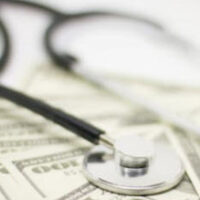Is Bankruptcy the Best Solution to Medical Debt?

In more than half of all bankruptcy filings by individuals, the applicants cite medical debt as the main type of debt they are seeking to discharge and the biggest contributor to their financial hardships. Medical debt can strike almost anyone; only the wealthiest people can afford to pay a hospital bill in full when it arrives in the mail. Given that households that earn $100,000 per year in today’s economy live paycheck to paycheck, the treatment for a minor illness can lead to years of threatening notices from medical creditors and collection agencies, and consumers can even find themselves on the receiving end of business to consumer lawsuits. While you have the right to file for bankruptcy protection to discharge your medical debts, just like you can do with any non-exempt debts that you cannot pay, this is not always the best solution. Think of dealing with medical debt as standing up to a bully; most bullies back down when you call their bluff. To discuss medical bankruptcy and its alternatives in more detail, contact a Miami chapter 13 bankruptcy lawyer.
If You Can Make Payments on a Chapter 13 Bankruptcy Plan, You Can Make Payments on Your Medical Bills
Medical debt is excessive and unfair, but the most important step toward making it go away is acknowledging it. Of course, the doctors’ offices and health insurance companies will send you on wild goose chases to find answers; they are trying to discourage people from exercising their rights by making the process so difficult. Once you show that you mean business, though, doors open up. If you contact the creditor directly, they might offer you an affordable installment plan, or even discount the total price.
Of course, if you discharge your medical debt through chapter 13 bankruptcy, the process is similar; you pay a monthly installment that the court determines you can afford, and after you keep up with the payments for several years, the rest gets discharged. The difference is that you must pay for a bankruptcy filing, and the bankruptcy filing appears on your credit report, reducing your creditworthiness.
If You Are Too Poor for Chapter 13 Bankruptcy, You Are Poor Enough for Medical Debt Relief
Chapter 13 bankruptcy is only an option for people who have enough income to keep up with a debt repayment plan, but everyone, regardless of income level, can file for chapter 7. You can discharge your medical debt in chapter 7 bankruptcy, but this will result in a major negative mark on your credit report. If your income is too low to make chapter 13 bankruptcy a feasible option, you probably qualify for financial aid to help with your medical bills. Most hospitals will discount the amount you owe if your income is below a certain threshold. The sooner you notify the hospital of this, the better; you might be able to avoid the spiral of debt that leads so many people to file for bankruptcy.
Work With a Debt Lawyer About Responding Calmly to Medical Debt
A South Florida debt lawyer can help you address your medical debt. Contact Nowack & Olson, PLLC in Miami, Florida to discuss your case.
Source:
businessinsider.com/personal-finance/credit-score/medical-bankruptcies
